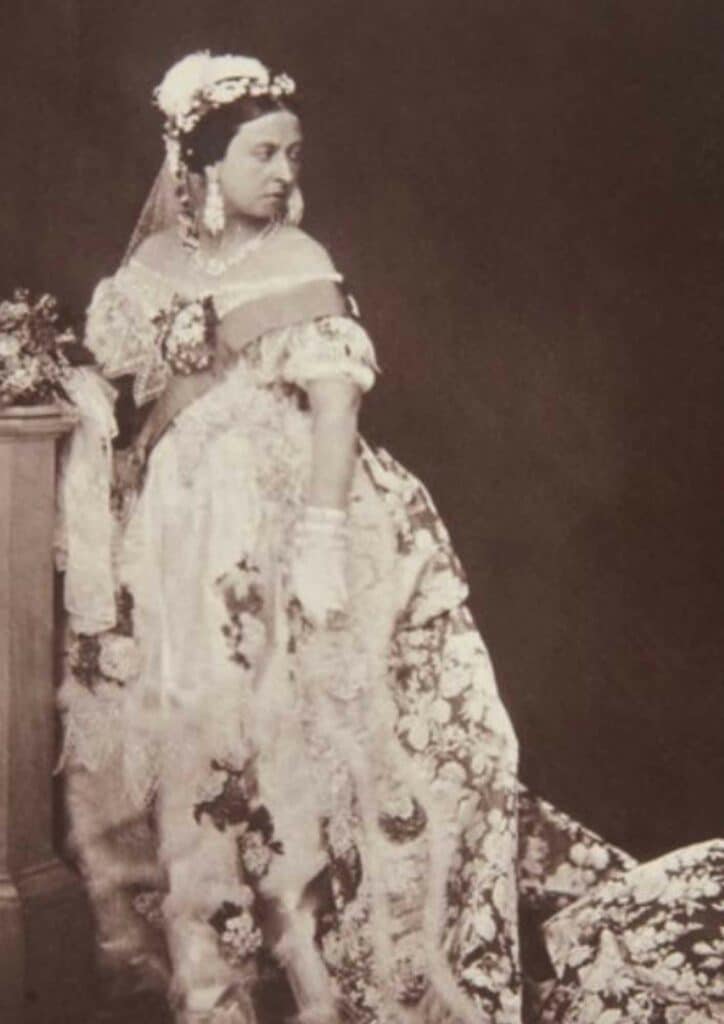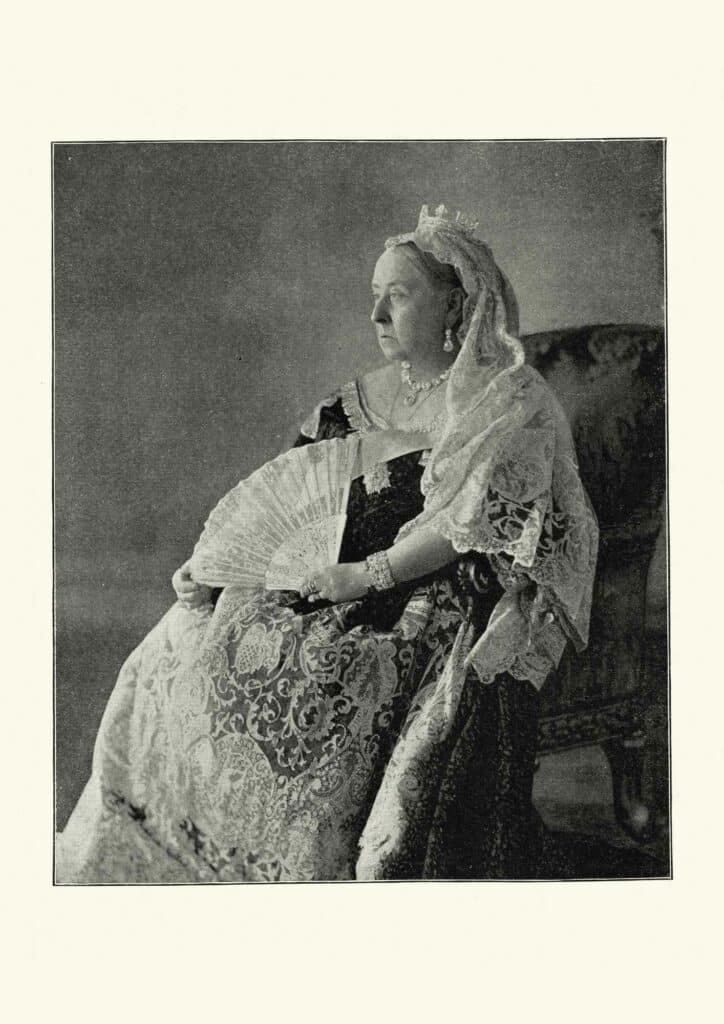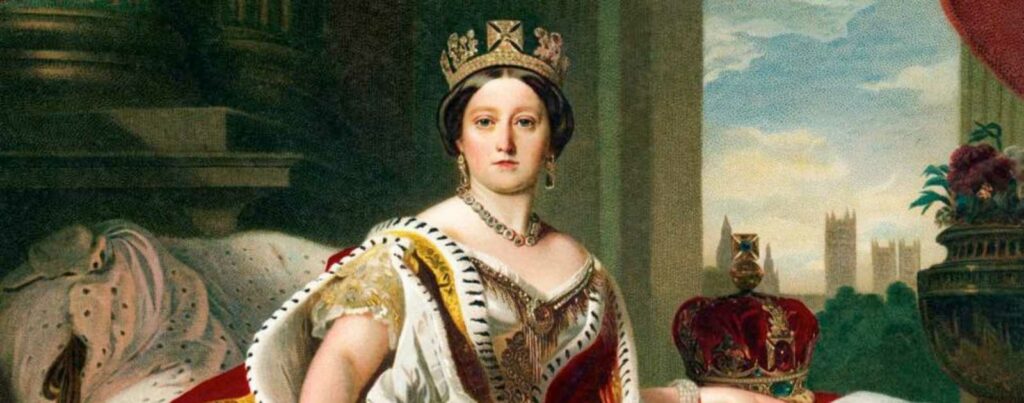In the annals of history, few figures loom as large as Queen Victoria, whose reign marked the zenith of the British Empire and the dawn of a new era. But beyond her iconic image as the stern matriarch of the Victorian age, Victoria’s legacy as the Empress of India stands as a testament to her indomitable spirit and enduring influence.

Born in 1819, Victoria ascended to the throne at the tender age of 18, inheriting a vast empire that spanned the globe. Despite her youth and inexperience, she proved to be a formidable leader, guiding her nation through a period of unprecedented change and transformation.
Queen Victoria’s reign coincided with the height of British imperial expansion, and it was during her tenure that the crown jewel of the empire, India, came under British control. In 1876, Victoria assumed the title of Empress of India, a symbolic gesture that underscored Britain’s dominance over the subcontinent.
But Victoria’s role as Empress went beyond mere symbolism. She was deeply invested in the welfare of her Indian subjects, taking a keen interest in the affairs of the colony and advocating for reforms to improve the lives of the people. Under her patronage, India witnessed the construction of railways, the expansion of education, and the modernisation of infrastructure.
Queen Victoria’s relationship with India was not without its complexities. While she was revered by many as a benevolent ruler, others saw her as a symbol of British imperialism and oppression. Yet, Victoria’s genuine affection for India and its people was evident in her efforts to promote cultural exchange and understanding between the East and the West.
Beyond her imperial duties, Victoria was also a devoted wife and mother, presiding over a sprawling royal family that spanned multiple generations. Her marriage to Prince Albert was a love match for the ages, and together they forged a partnership that would define an era. Despite the trials and tribulations they faced, including Albert’s untimely death, Queen Victoria remained steadfast in her commitment to her family and her nation.
As her reign drew to a close, Victoria’s legacy as the Empress of India remained firmly entrenched in the annals of history. Her reign witnessed the rise of Britain as a global superpower and laid the groundwork for the modern world we inhabit today. But perhaps more importantly, Victoria’s compassion, strength, and unwavering sense of duty serve as an enduring inspiration to us all.
Amidst Queen Victoria’s reign as Empress of India, her interactions with the Far East, particularly China, cast a shadow over her otherwise illustrious legacy. Victoria’s entanglements in conflicts with China, as well as her diplomatic missteps and involvement in the Opium Wars, revealed the complexities of imperial power and the moral ambiguities of foreign policy.
Queen Victoria’s era coincided with a period of profound transformation in China, marked by internal strife and external pressures from Western powers. Empress Dowager Cixi Yehonala, a formidable ruler in her own right, governed China during this tumultuous time. As Britain sought to expand its influence in the Far East, Victoria found herself embroiled in conflicts and power struggles with Cixi’s Qing Dynasty.
The Opium Wars, fueled by Britain’s trade in opium and its quest for economic supremacy, epitomised the darker side of imperialism. Victoria’s involvement in these conflicts, driven by a desire to secure British interests, underscored the perils of unchecked ambition and the human cost of greed and exploitation. Read more here.
Furthermore, Victoria’s embrace of gunboat diplomacy, exemplified by the deployment of British naval forces to enforce her will, exacerbated tensions with China and other nations. This aggressive approach to foreign policy reflected a naiveté regarding the complexities of international relations and the consequences of military intervention.

Despite Victoria’s genuine affection for India and its people, her actions in the Far East reveal a less nuanced understanding of imperial power and its implications. The clashes with China, the Opium Wars, and the use of gunboat diplomacy serve as cautionary tales of the dangers of hubris and the need for humility in the exercise of power.
In the end, Queen Victoria was more than just a monarch; she was a remarkable woman whose impact transcended borders and generations. Her story reminds us of the power of leadership, empathy, and resilience in shaping the course of history. And as we reflect on her legacy, we are reminded that the true measure of greatness lies not in the trappings of power, but in the hearts and minds of those we touch along the way.
Similar to the Queen, I was hesitant to revive two Boadiceas, but Katy and Clara Yehonala are poised to revolutionise their world as they fight against the injustices inflicted upon those less fortunate. Get your copy of this extraordinary Butterfly Dynasty Series today.
